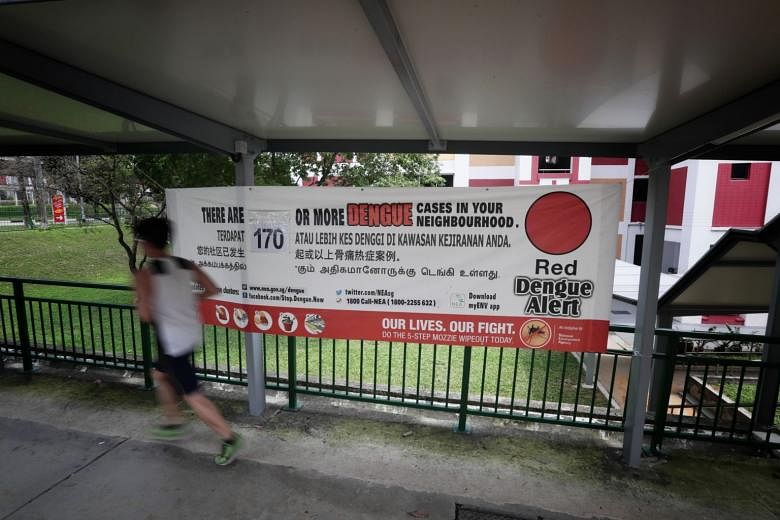SINGAPORE - Twenty-two new dengue clusters have emerged over a period of two days, bringing the total number as at Wednesday (Jan 8) to 108.
This is a 25 per cent increase over the 86 clusters reported on Monday.
Dengue infections have been rising over the past two weeks, following five weeks of declining figures.
There were 313 reported dengue infections last week. Between Sunday and 3pm on Wednesday, another 189 people were diagnosed with the viral disease.
The current outbreak appears to be quite severe, with 20 people dying of it last year.
Eighty-eight people had the more severe dengue haemorrhagic fever last year; this is more than quadruple the previous five-year median of 20 such cases a year.
Generally, one in five people diagnosed by a doctor to have dengue is seriously ill enough to require hospital care.
The infections appear to be spread islandwide, although there is a slightly higher concentration in the north and the east.
The biggest cluster is in Pasir Ris, with 153 cases. Of these, almost a third are in the parallel roads of Riverina View and Riverina Crescent.
Other big clusters include two in the Yio Chu Kang area, one with 134 people infected and the other with 129 cases.
The National Environment Agency is concerned about increased mosquito breeding with the coming Chinese New Year festivities as "homes and other premises will be decorated with more ornamental plants".
On its website it urged people to "take care of these plants and prevent them from becoming mosquito-breeding habitats by making sure water does not gather in the flowerpot plate or on the soil".
The Aedes mosquito does not need much water to breed. A small amount the size of a 20-cent coin is enough. One female mosquito can lay 300 eggs in its lifetime.
The NEA added: "Home owners doing spring cleaning are also reminded to properly dispose of any refuse, including large furniture or household items, to avoid the discarded materials from becoming unintentional mosquito-breeding habitats."
Dengue fever is spread through the bite of a mosquito, which picks up the virus from an infected person and passes it on to other people it then bites.
Symptoms of dengue include fever, joint ache, nausea and vomiting, headache, and rash. In more severe cases, a person may bleed from the nose or gums.


